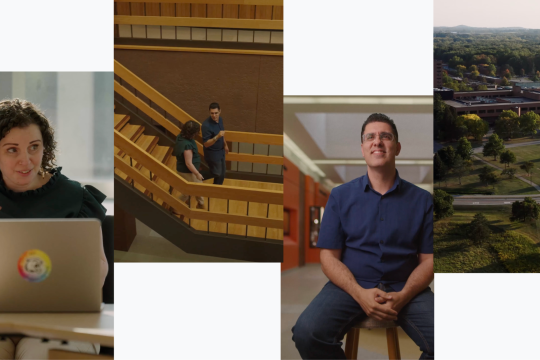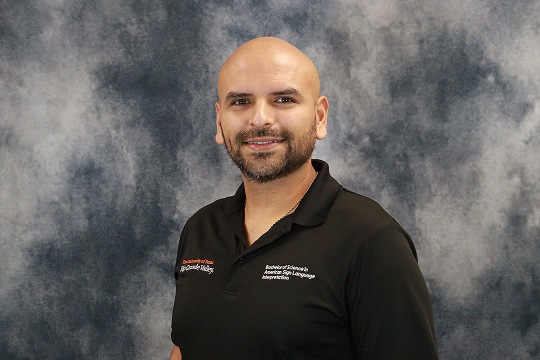NTID AlumniNews
RIT/NTID receives federal funding appropriation from 2023 Omnibus budget

At a press briefing at the Canandaigua Veterans Administration facility on Jan. 4, U.S. Senate Majority Leader Chuck Schumer and U.S. Senator Kirsten Gillibrand (D-NY) announced an increase in the annual appropriation for Rochester Institute of Technology’s National Technical Institute for the Deaf.
RIT/NTID received $92.5 million for the fiscal year 2023, a $4 million increase from 2022, with NTID’s Regional STEM Center receiving $9.5 million, as it did in fiscal year 2022. The funding was included as part of the fiscal year 2023 omnibus budget package, which will fund the government and its various agencies.

Senate Majority Leader Chuck Schumer and NTID President Gerry Buckley.
One of nine colleges of RIT, NTID was established by an Act of Congress in 1965 to educate and prepare deaf and hard-of-hearing students for employment in a growing and changing global economy. It is the world’s first and largest technological college for deaf and hard-of-hearing students.
“With this additional $4 million in operations funding, NTID will be able to grow our academic program offerings, create new scholarships to support recruitment and retention of underrepresented students in our interpreting and secondary education programs, and hire additional real-time captionists to meet increased demand for access services in our classrooms,” said Gerry Buckley, NTID president and RIT vice president and dean. “This also ensures NTID can increase support for mental health services and case management for students experiencing significantly more challenges as we emerge from the pandemic.”
In remarks at the Jan. 4 event, Sen. Schumer highlighted NTID’s work with deaf and hard-of-hearing students from across the country and the college’s research efforts. “NTID does amazing work, and I’m proud to fight for them.”
“We are incredibly fortunate to have Senate Majority Leader Chuck Schumer, Senator Kirsten Gillibrand, and Representative Joe Morelle fighting for NTID and our deaf and hard-of-hearing students,” Buckley said. “They have succeeded once again in delivering the funding we need to support our students and provide the education, mentorship, community, and access that lead to their success here at NTID and out in the workforce and larger community. Senator Schumer, Senator Gillibrand, and Congressman Morelle are great partners who have improved the lives of thousands of deaf and hard-of-hearing young people.”
In addition to the increased funding for NTID, RIT will receive $2 million from the U.S. Department of Commerce to update and expand its Semiconductor Fabrication Lab to accommodate research in semiconductor technologies and prepare the workforce for the growing domestic microelectronics manufacturing industry.
This story originally appeared in RIT News.








